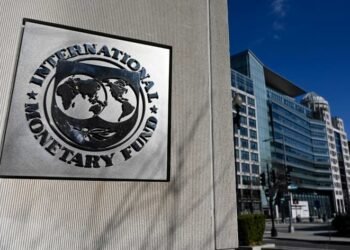The International Monetary Fund (IMF) has beckoned emerging economies to braze up for tightening policy rates as a result of the new Omicron variant of the COVID-19.
According to the organization, now sentiments have shifted, and as such, prices are rising at the fastest pace in almost four decades and the tight labor market has started to feed into wage increases. IMF noted that the new Omicron variant has raised additional concerns of supply-side pressures on inflation.
IMF noted that to deal with the inflation and other economics issues, the Fed’s policy guidance indicated it would raise borrowing costs more quickly.
“Should policy rates rise and inflation moderate as expected, history shows that the effects for emerging markets are likely benign if tightening is gradual, well telegraphed, and in response to a strengthening recovery.”
IMF
IMF averred that for most of last year, investors priced in a temporary rise in inflation in the United States given the unsteady economic recovery and a slow unravelling of supply bottlenecks.
These changes have made the outlook for emerging markets more uncertain. These countries also are confronted with elevated inflation and substantially higher public debts. Average gross government debt in emerging markets is up by almost 10 percentage points since 2019 reaching an estimated 64% of GDP by end 2021, with large variations across countries.
But, in contrast to the United States, their economic recovery and labor markets are less robust. While dollar borrowing costs remain low for many, concerns about domestic inflation and stable foreign funding led several emerging markets last year, including Brazil, Russia, and South Africa, to start raising interest rates.
New risks to recovery
IMF stated it continues to expect robust US growth. Inflation will likely moderate later this year as supply disruptions ease and fiscal contraction weighs on demand.
“Emerging-market currencies may still depreciate, but foreign demand would offset the impact from rising financing costs.”
IMF
The International Monetary Fund noted that spill overs to emerging markets could also be less benign. Broad-based US wage inflation or sustained supply bottlenecks could boost prices more than anticipated and fuel expectations for more rapid inflation. Faster Fed rate increases in response could rattle financial markets and tighten financial conditions globally.
“These developments could come with a slowing of US demand and trade and may lead to capital outflows and currency depreciation in emerging markets.
“The impact of Fed tightening in a scenario like that could be more severe for vulnerable countries. In recent months, emerging markets with high public and private debt, foreign exchange exposures, and lower current-account balances saw already larger movements of their currencies relative to the US dollar.”
IMF
The combination of slower growth and elevated vulnerabilities could create adverse feedback loops for such economies, as the IMF highlighted in its October releases of the World Economic Outlook and Global Financial Stability Report.
Difficult trade-offs
Some emerging markets have already started to adjust monetary policy and are preparing to scale back fiscal support to address rising debt and inflation. In response to tighter funding conditions, emerging markets should tailor their responses based on their circumstances and vulnerabilities. Those with policy credibility on containing inflation can tighten monetary policy more gradually, while others with stronger inflation pressures or weaker institutions must act swiftly and comprehensively.
In either case, the IMF stated that responses should include letting currencies depreciate and raising benchmark interest rates. If faced with disorderly conditions in foreign exchange markets, central banks with sufficient reserves can intervene provided this intervention does not substitute for warranted macroeconomic adjustment.
Nevertheless, such actions can pose difficult choices for emerging markets as they trade off supporting a weak domestic economy with safeguarding price and external stability.
Similarly, the IMF indicated that extending support to businesses beyond existing measures may increase credit risks and weaken the longer-term health of financial institutions by delaying the recognition of losses. And rolling back those measures could further tighten financial conditions, weakening the recovery.
To manage these trade-offs, emerging markets can take steps now to strengthen policy frameworks and reduce vulnerabilities. For central banks tightening to contain inflation pressures, clear and consistent communication of policy plans can enhance the public’s understanding of the need to pursue price stability.
READ ALSO: NPP Youth Group Accuses Dr Bawumia and Supporters of Dividing The Party























